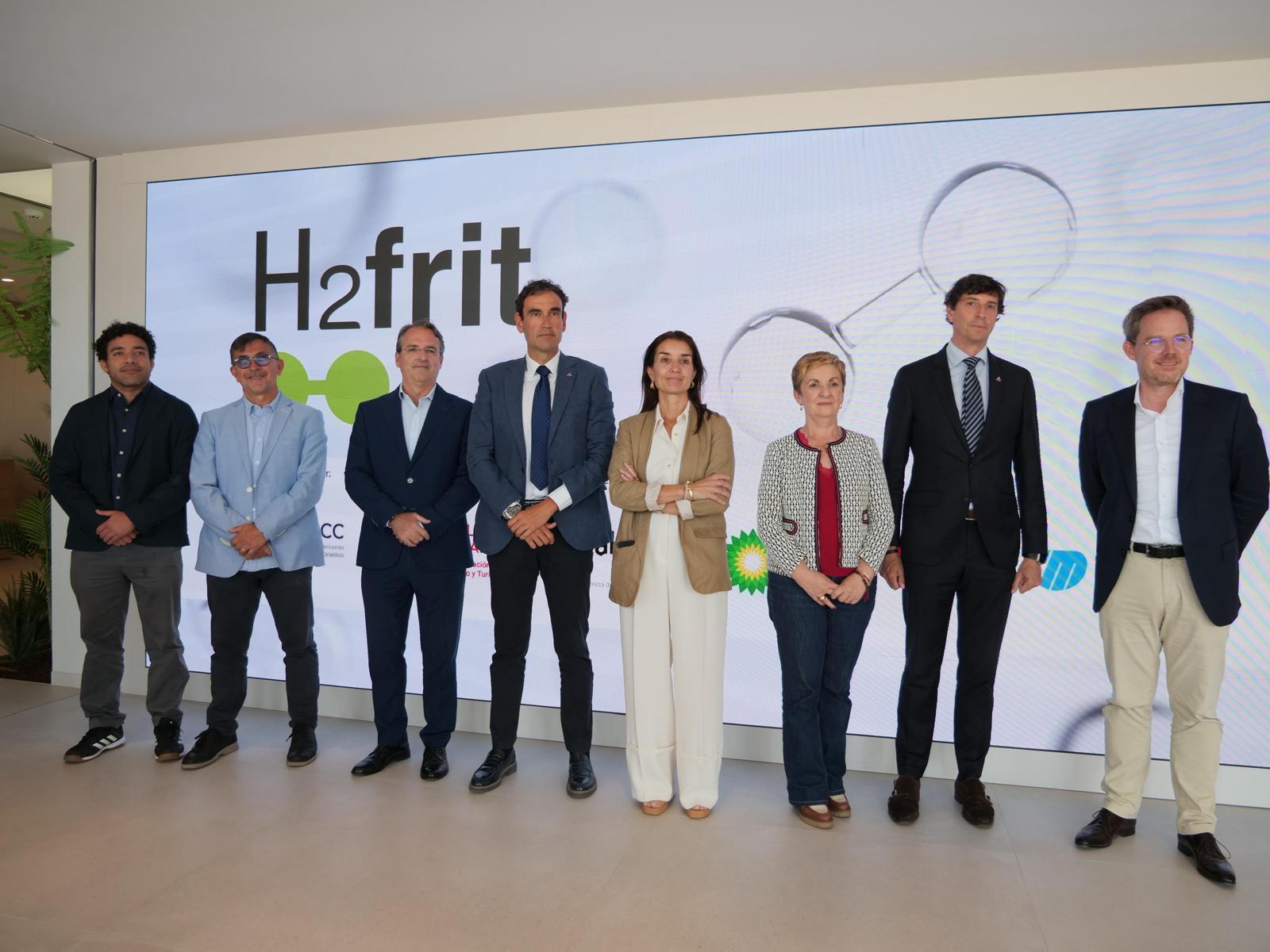ANFFECC presents the progress of the H2frit project to the Valencian Government, aimed at decarbonising the ceramic frits industry
Regional Ministers Cano and Merino visit the pilot furnace, accompanied by representatives from ANFFECC, Esmalglass, bp, ITC and Carburos Metálicos (Air Products). The project explores the use of hydrogen in ceramic frit production, with the goal of contributing to the sector’s decarbonisation.

Castellón, 27 May 2025. – The National Association of Manufacturers of Ceramic Frits, Enamels and Colours (ANFFECC) today organised an institutional event to present to regional authorities the progress of H2frit, a pioneering initiative led by the association that studies the technical feasibility of replacing natural gas with hydrogen in the frit melting process, with the aim of transferring the resulting knowledge to the entire sector.
The event was attended by Marian Cano, Regional Minister for Innovation, Industry, Trade and Tourism, and Ruth Merino, Regional Minister for Finance, Economy and Public Administration, together with General directors, members of the Valencian Parliament (Les Corts Valencianes), and representatives of the main entities collaborating on the project: Esmalglass, bp, the Institute of Ceramic Technology (ITC) and Carburos Metálicos (Air Products).
During the visit to the pilot furnace, located at Esmalglass’s facilities, the preliminary results of this project were presented. The initiative is funded by the Regional Ministry of Industry under its line of support for strategic industrial projects and is now entering its third and final year, with a total budget of €2.2 million.
“H2frit demonstrates that industry can anticipate change and move forward towards decarbonisation,” highlighted Regional Minister Marian Cano, who added: “The Valencian Government will continue to support projects that combine industrial innovation, sustainability and knowledge transfer, as these are key to the future of our productive fabric.”
For his part, ANFFECC Secretary General Manuel Breva stated: “Public-private collaboration has been essential to bring initiatives like H2frit from the laboratory to the industrial plant.” He added: “The technical results are very positive. The project is proving that producing ceramic frits with hydrogen is technically feasible, but for real implementation to be viable, we need supply guarantees, a clear regulatory framework and competitive prices.”
The project, which has attracted considerable international interest, has beenawarded the RENMAD 2025 Hydrogen Innovation Prize, and presented at leading events such as the National Hydrogen Congress, WhyH2 in Madrid, and the World Hydrogen Week in Copenhagen, among others.
The event included a technical presentation, the screening of an informative video, and a visit to the pilot furnace facilities.